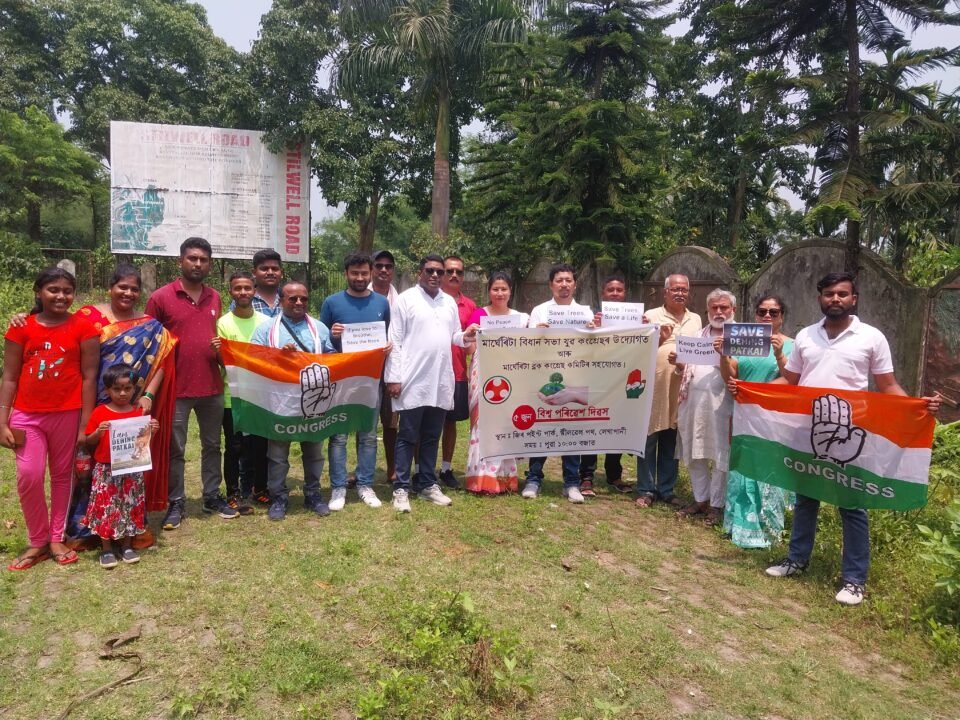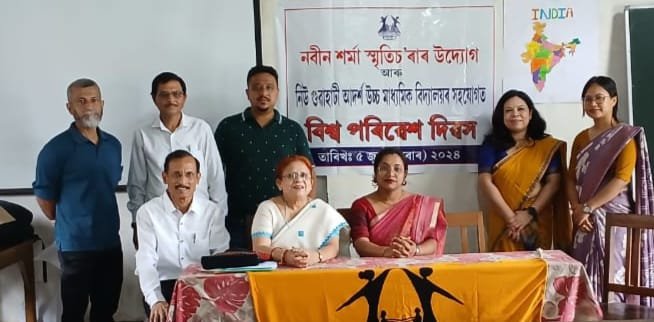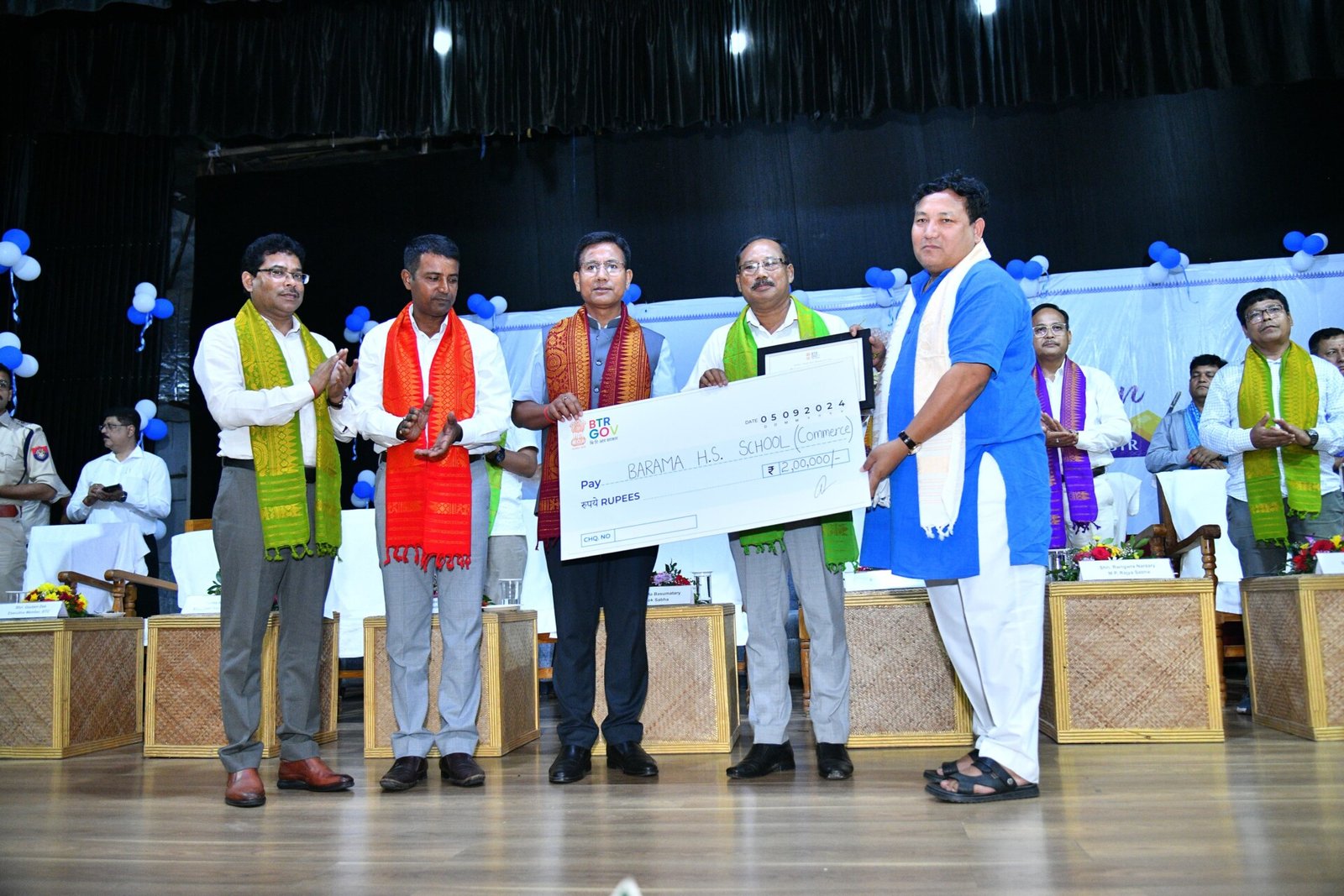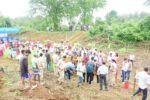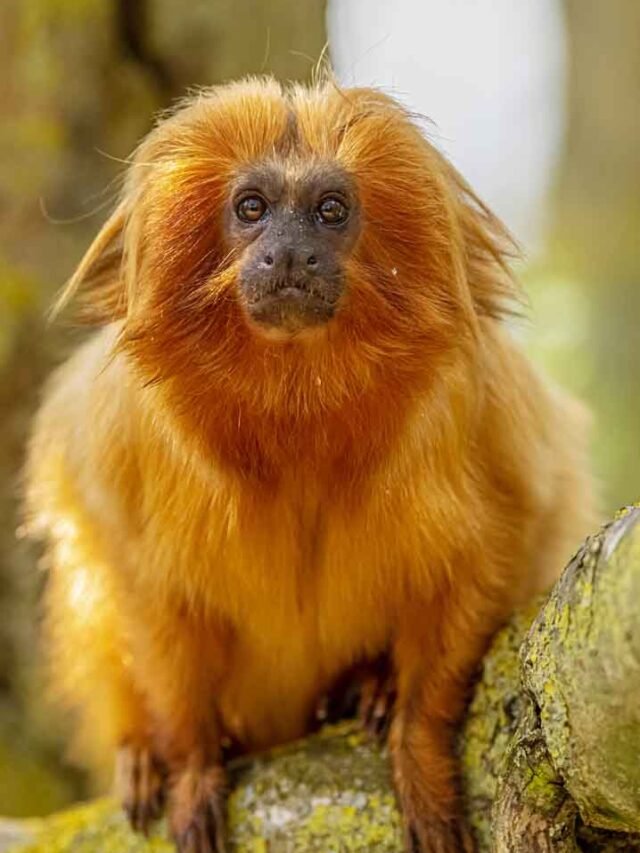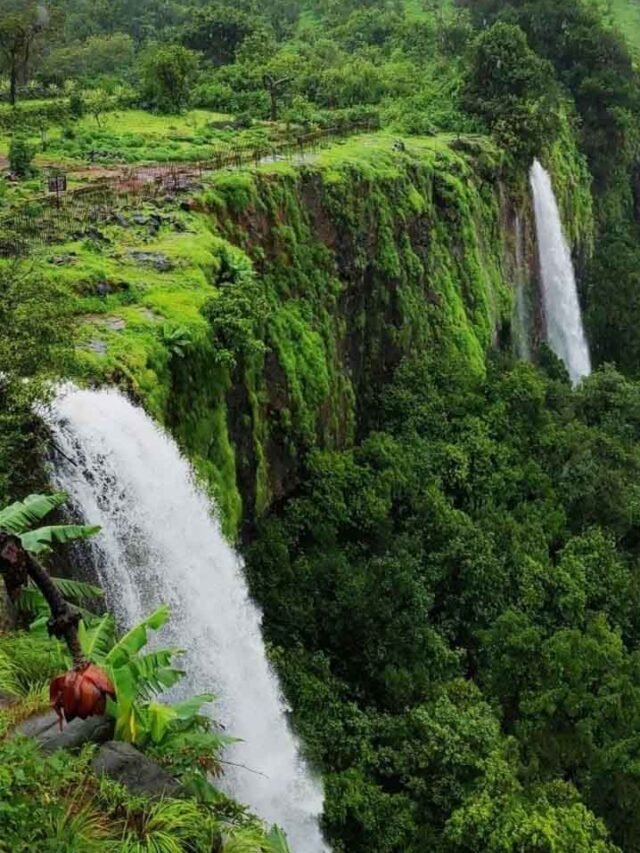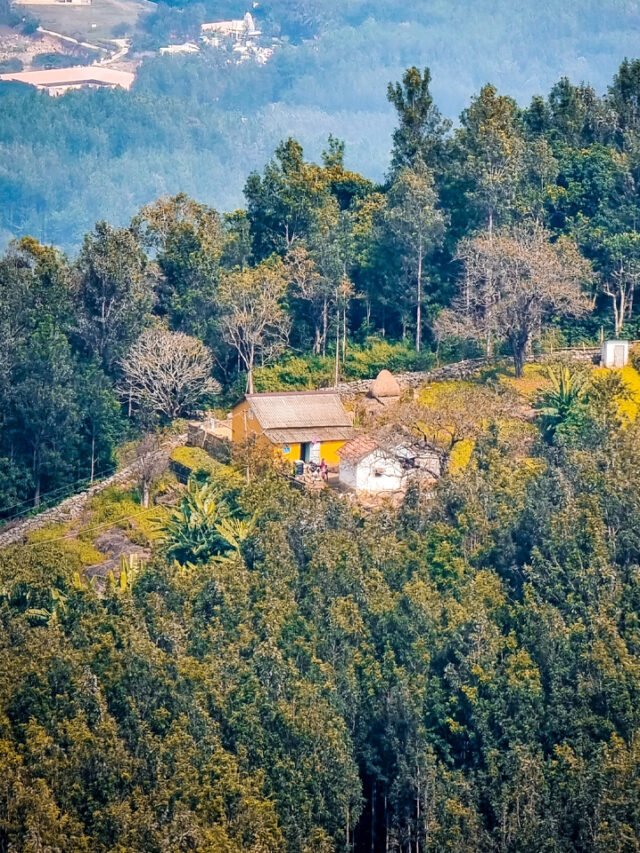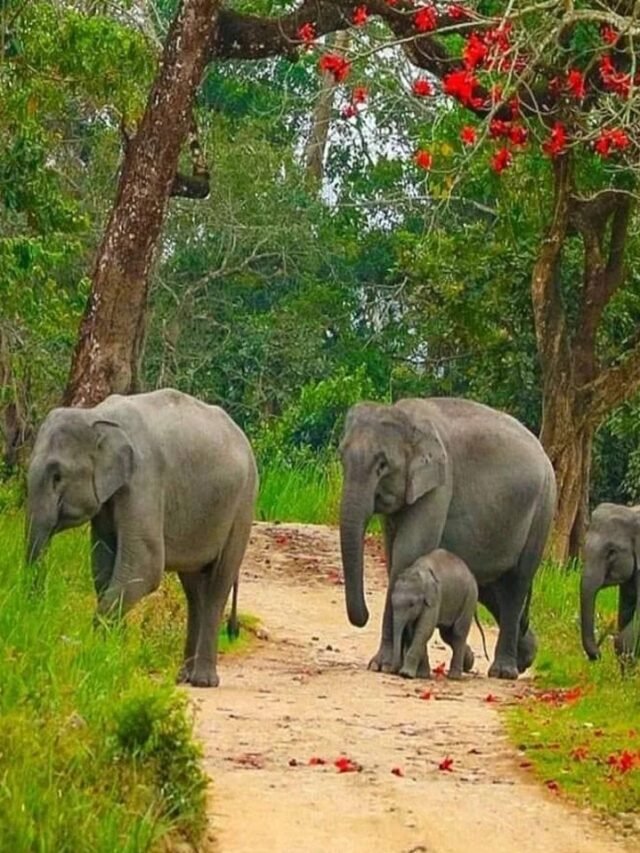HT Bureau
GUWAHATI, Dec 27: Aaranyak, a leading research-based biodiversity conservation organisation in north-east India, has initiated a school awareness campaign focused on cleaning, protecting, and conserving the deteriorated water bodies in the city of Guwahati.
The primary objective of the campaign is to raise awareness among students and teachers in selected schools near various rivers and wetlands in the city. The initiative aims to impart knowledge about the causes and impacts of water pollution and ecological degradation on the urban environment and human health. Aaranyak, through its Water, Climate, and Hazard Division (WATCH), encourages students and teachers to take actions to reduce pollution in and around water bodies, promoting responsible waste disposal practices. The organisation envisions students and teachers as primary change-makers who can influence families, schools, and society at large.
Awareness sessions have already been conducted in four schools—Beltola High School, Hatigaon High School, South Beltola ME School, and South Beltola High School in the southern part of the city from December 21 to 23. The campaign covered areas with degraded water bodies like the Basistha and Bahini rivers, which flow through the region, impacting the environment and public health negatively.
Dr Partha Jyoti Das, senior scientist with Aaranyak and head of WATCH, highlighted that the initiative engaged around 200 students and teachers during the initial phase and will extend to cover more schools over the next month, focusing on areas with different degraded water bodies in the city.
During these awareness sessions, Aaranyak researchers and educators delivered presentations to students, explaining the present condition of water bodies, the causes of their degradation, and the observed and potential impacts on the environment and public health. The campaign utilised PowerPoint presentations and printed materials with educational information in both English and Assamese to sensitise students.
The campaign aimed to address key questions, including the importance of keeping rivers and wetlands clean for environmental and health security, the impacts of pollution on the environment and public health, citizen responsibilities for improving the ecohydrological health of water bodies, and ways students and teachers can contribute to the government’s efforts in rejuvenating the water bodies.
Dr Das stated that the program would benefit over 20 schools situated near urban water bodies, promoting sustainable practices. Aaranyak hopes that through this and future programs, citizens will understand the positive outcomes of restoring and protecting urban water bodies, including biodiversity preservation, improved public health, groundwater recharge, ecotourism potential, public recreation, visual beauty, and overall citizen well-being.
The Aaranyak team conducting the campaign includes Hemanta Phukon, Kakoli Sarma, Leena Sharma, Jyotismita Kashyap, and Bhanita Deka, working under the supervision of environmental scientist Dr Partha Jyoti Das.



